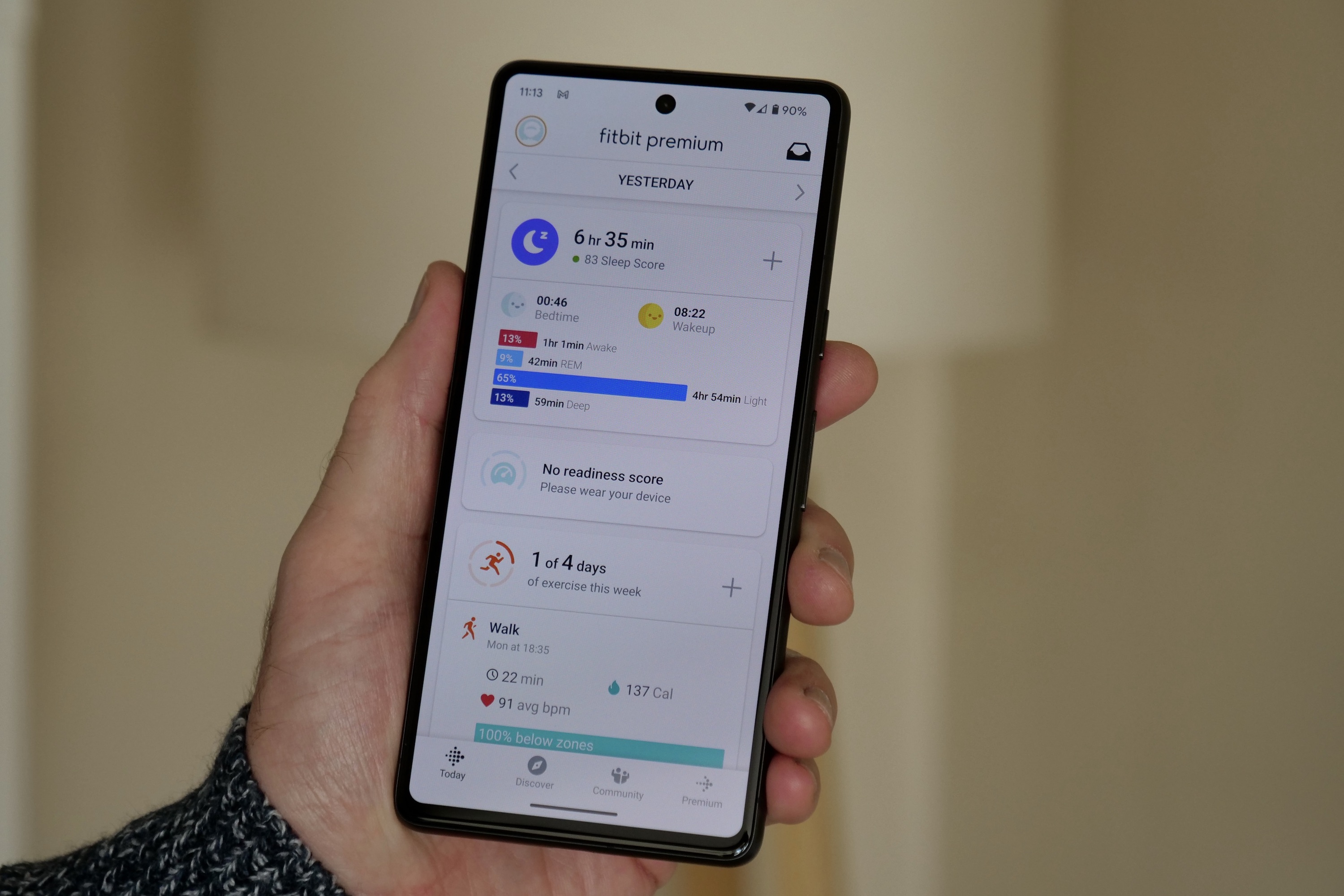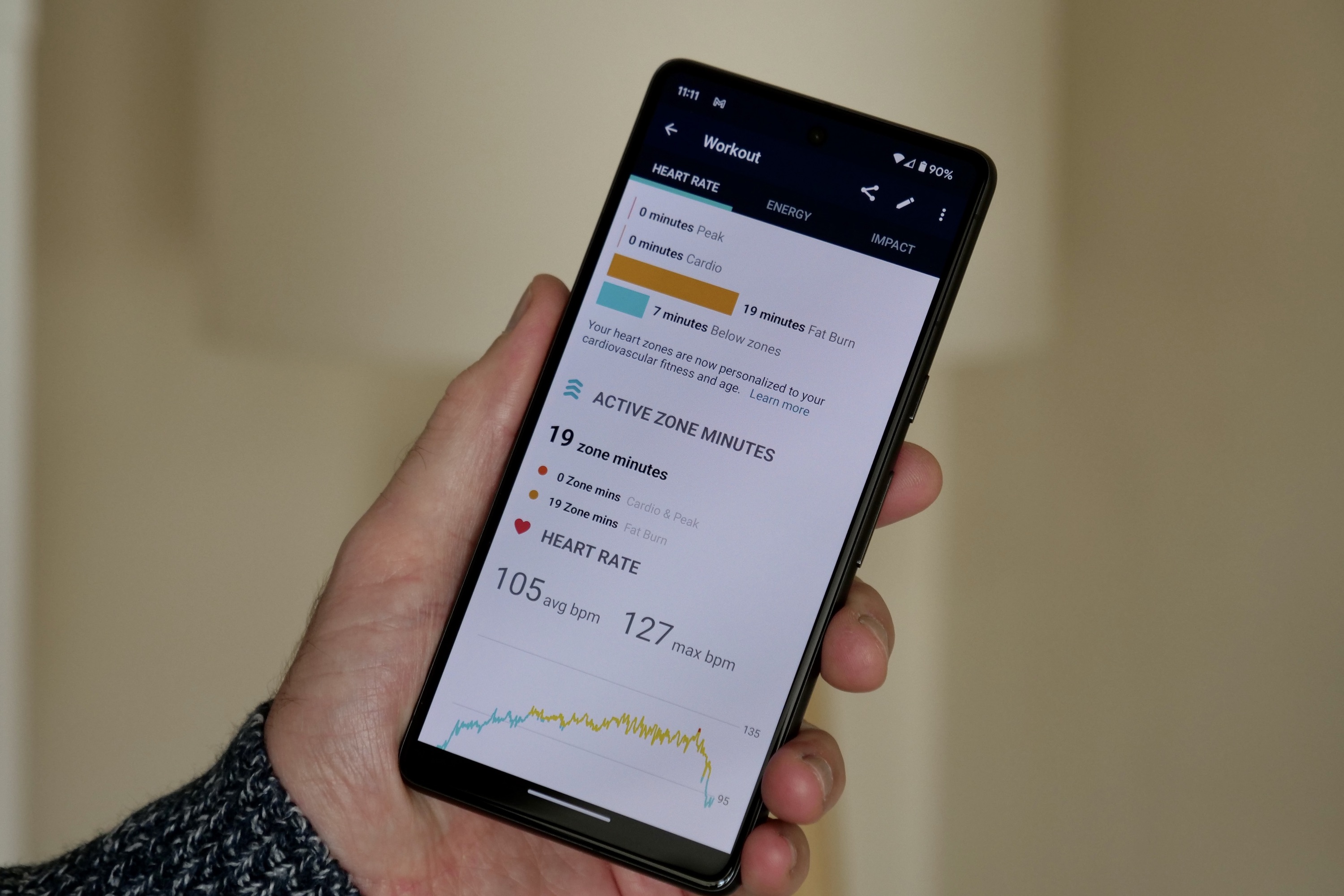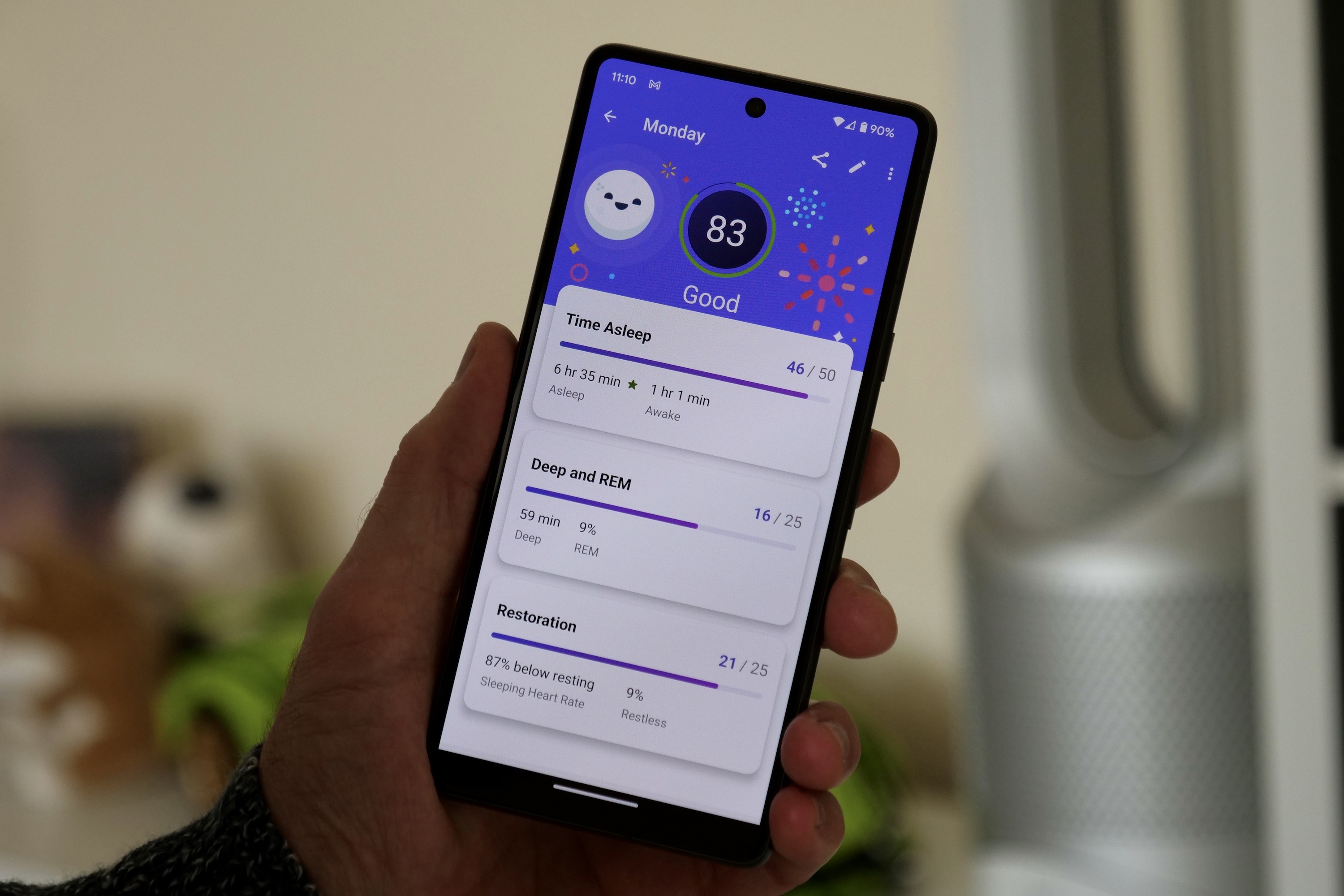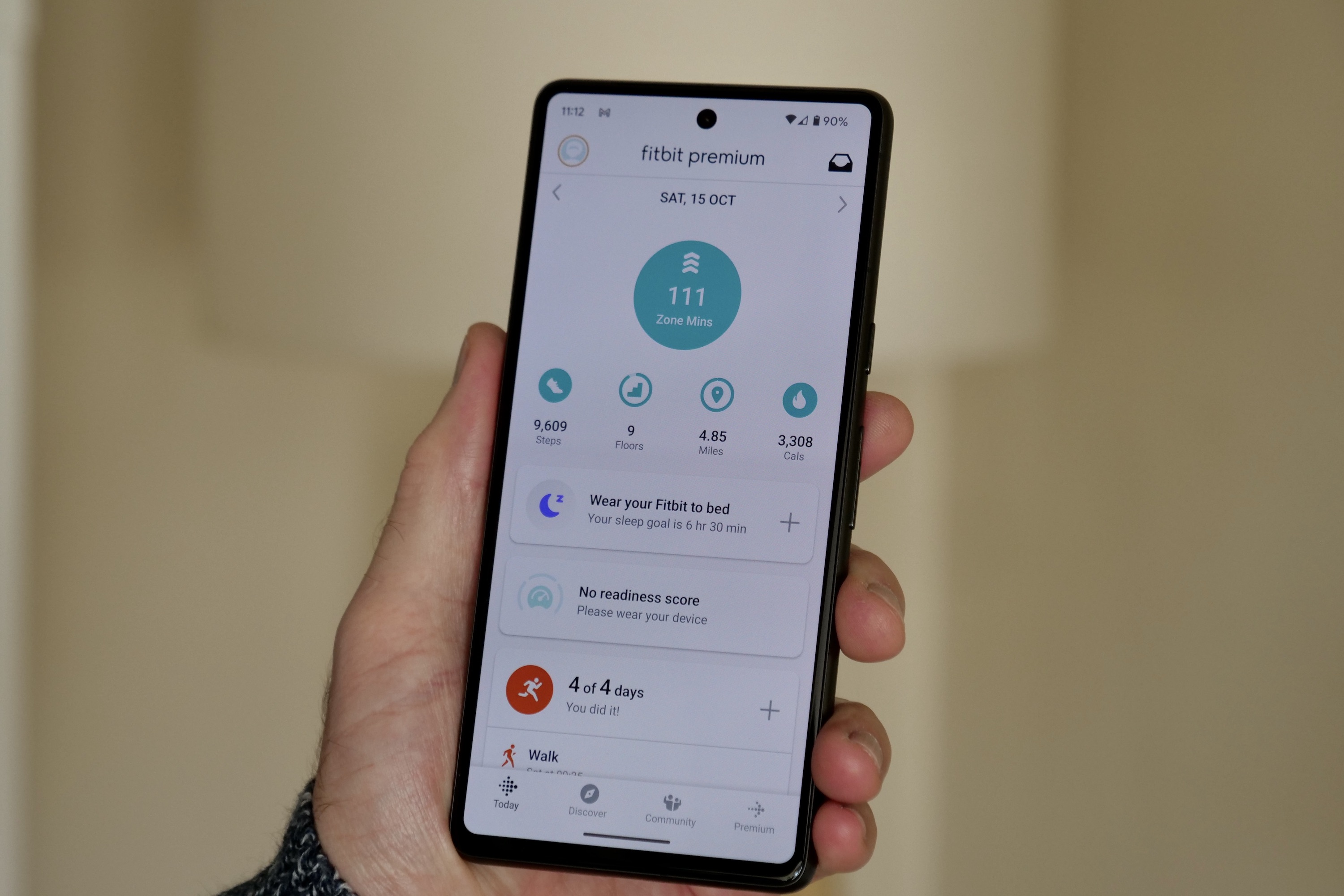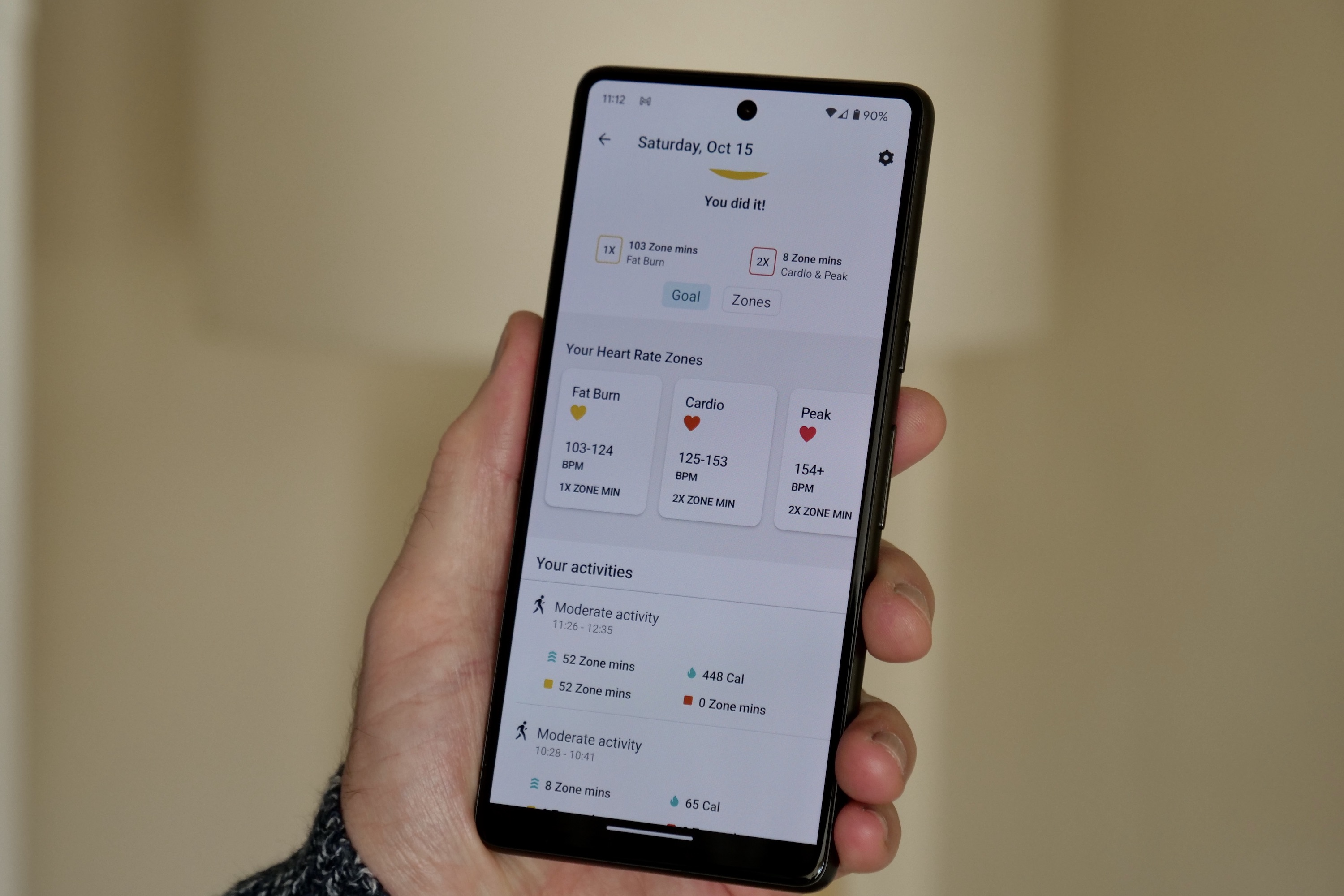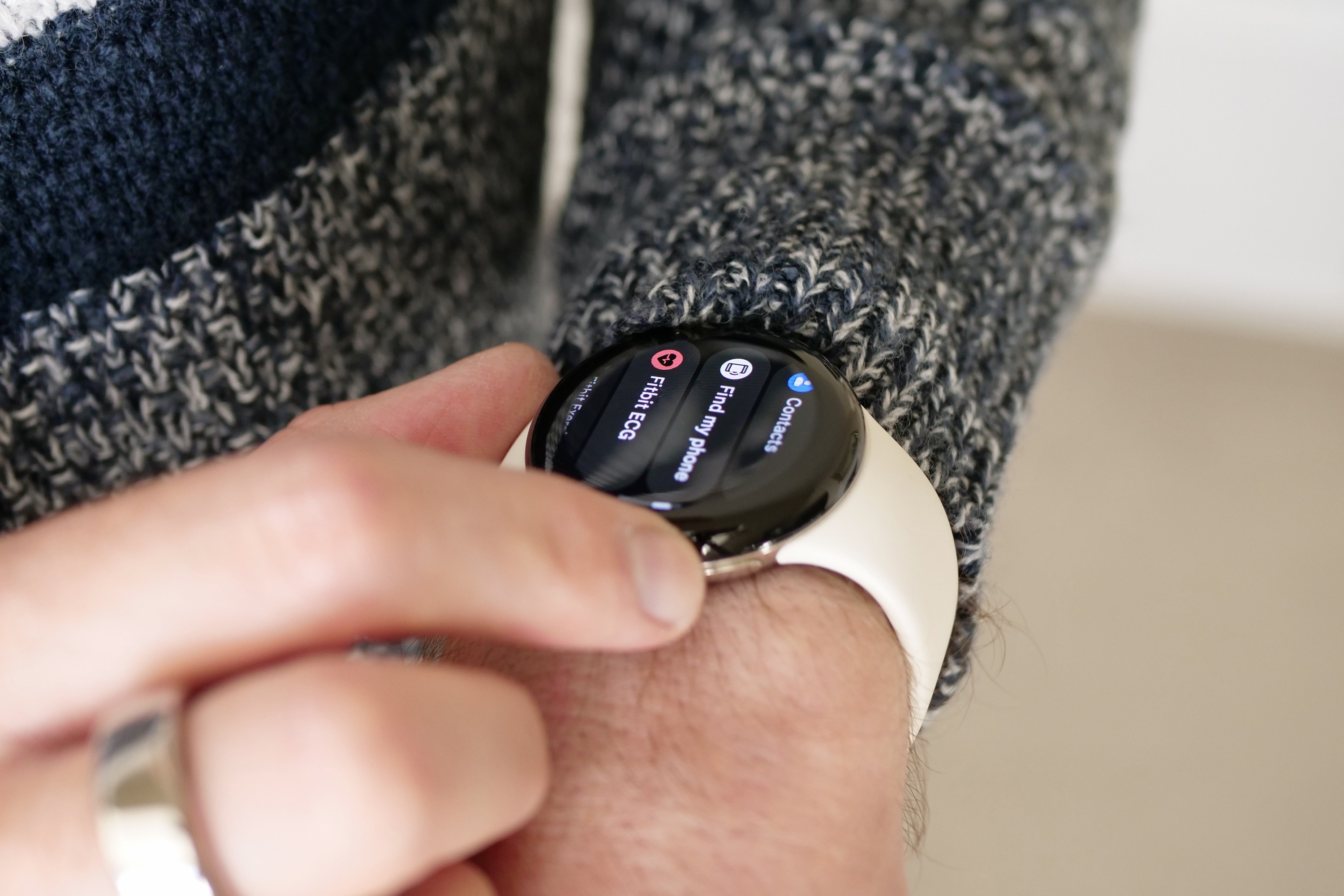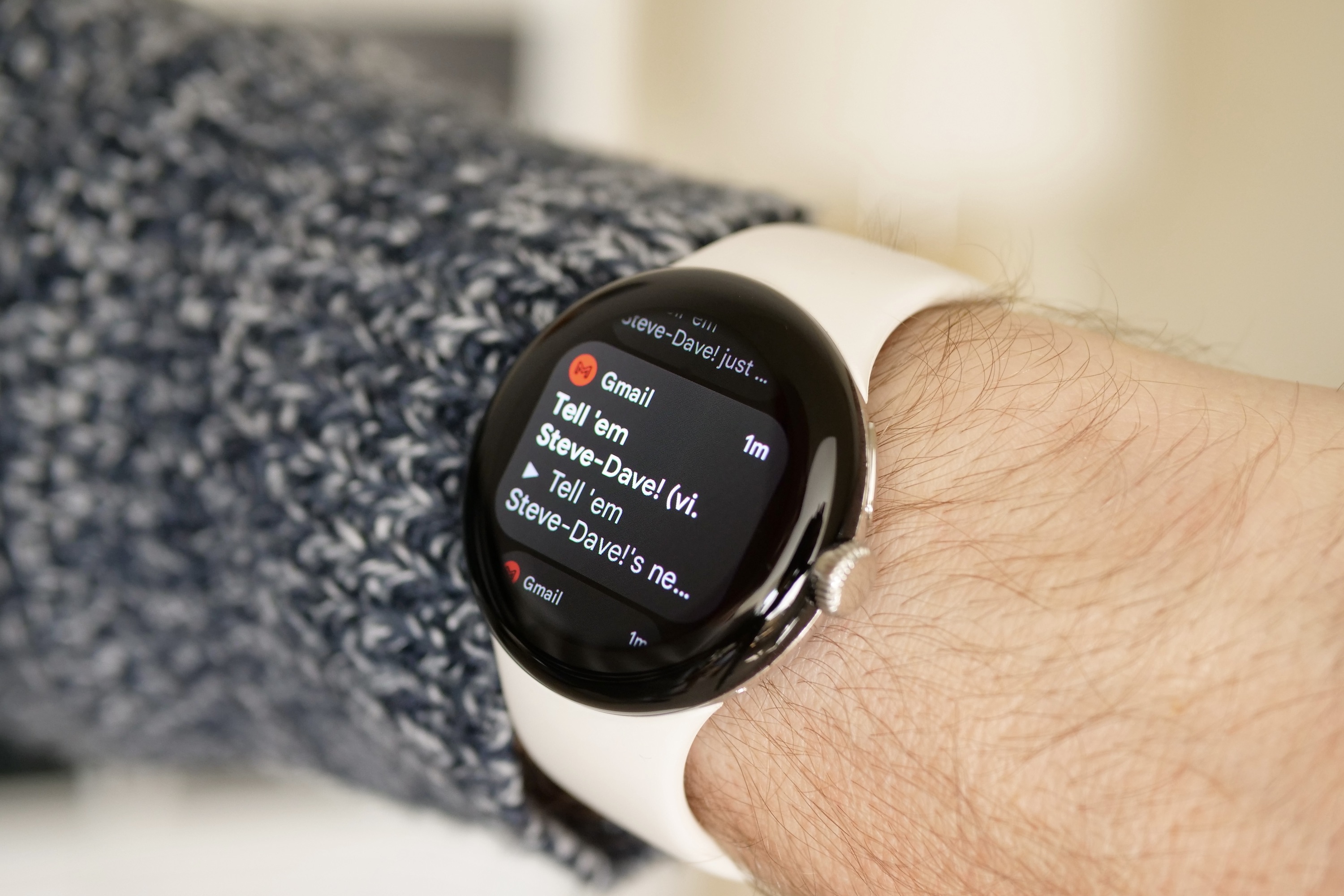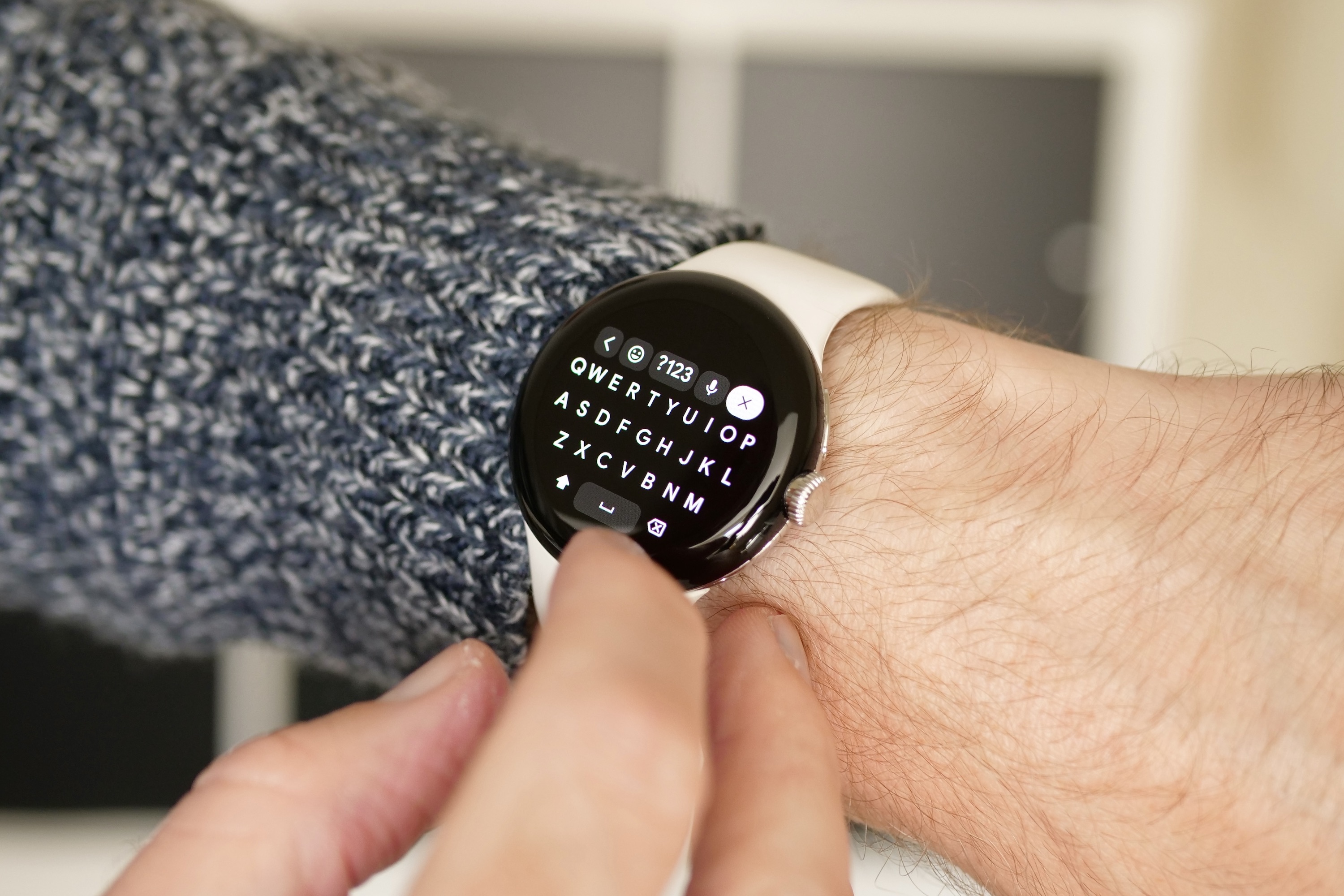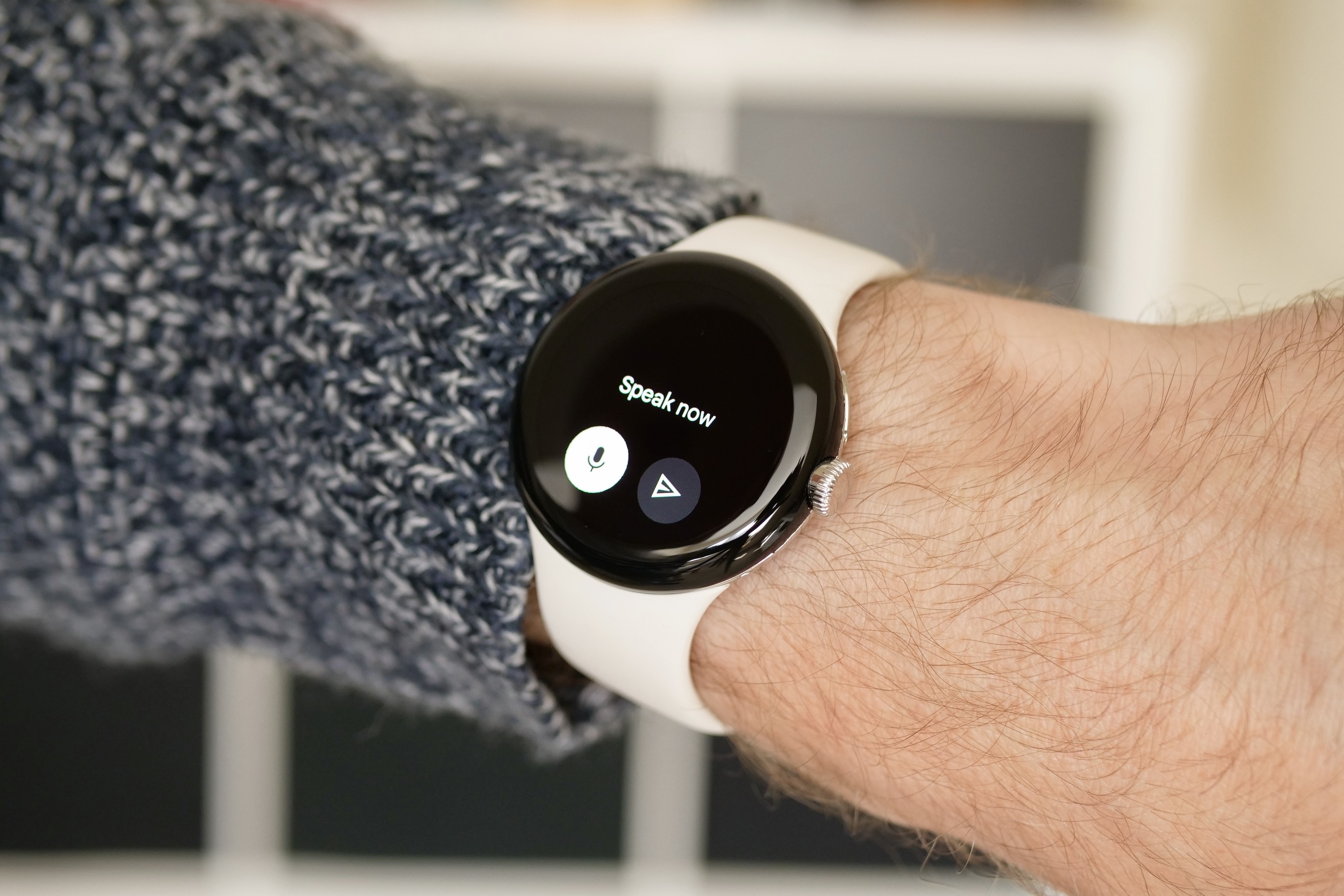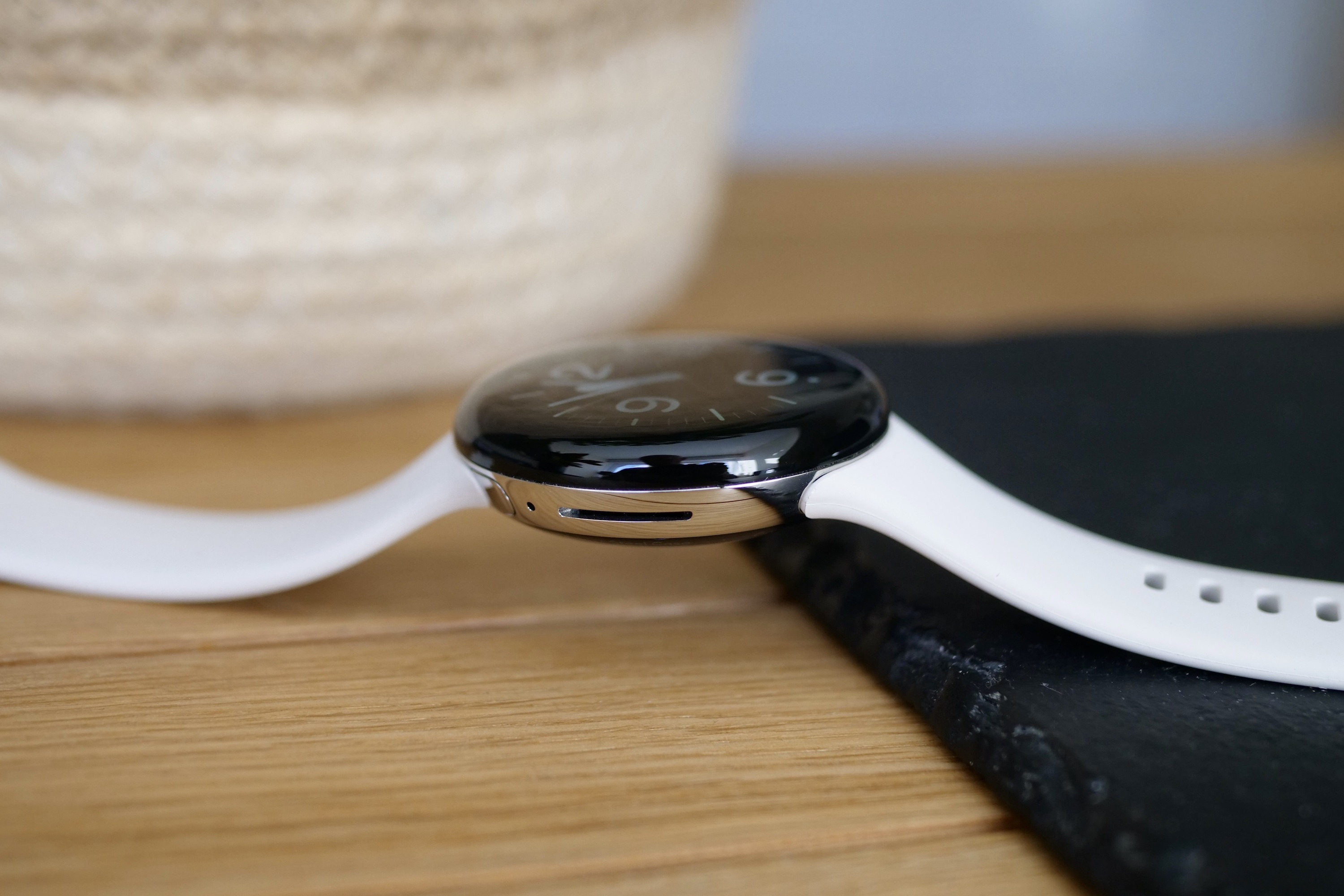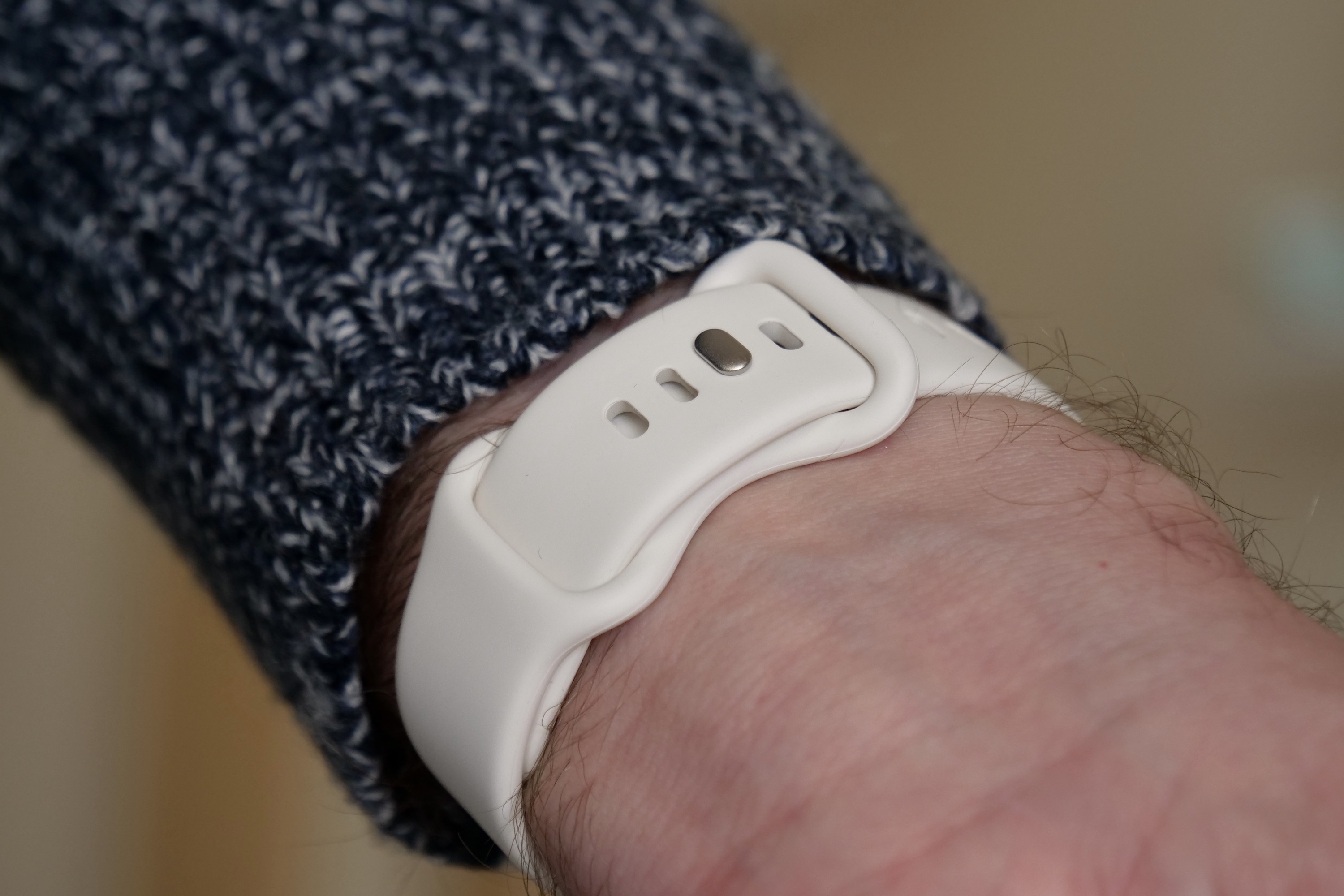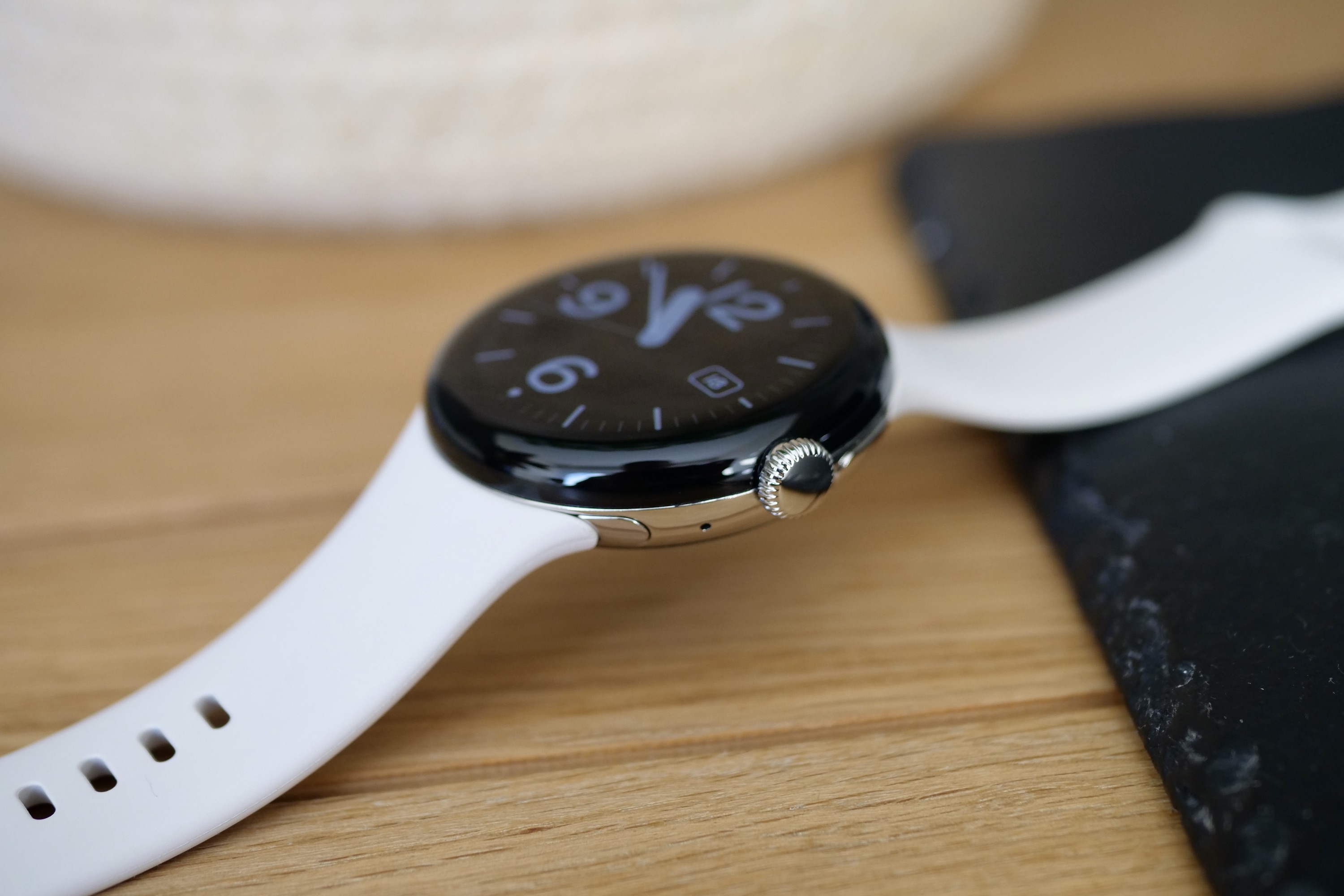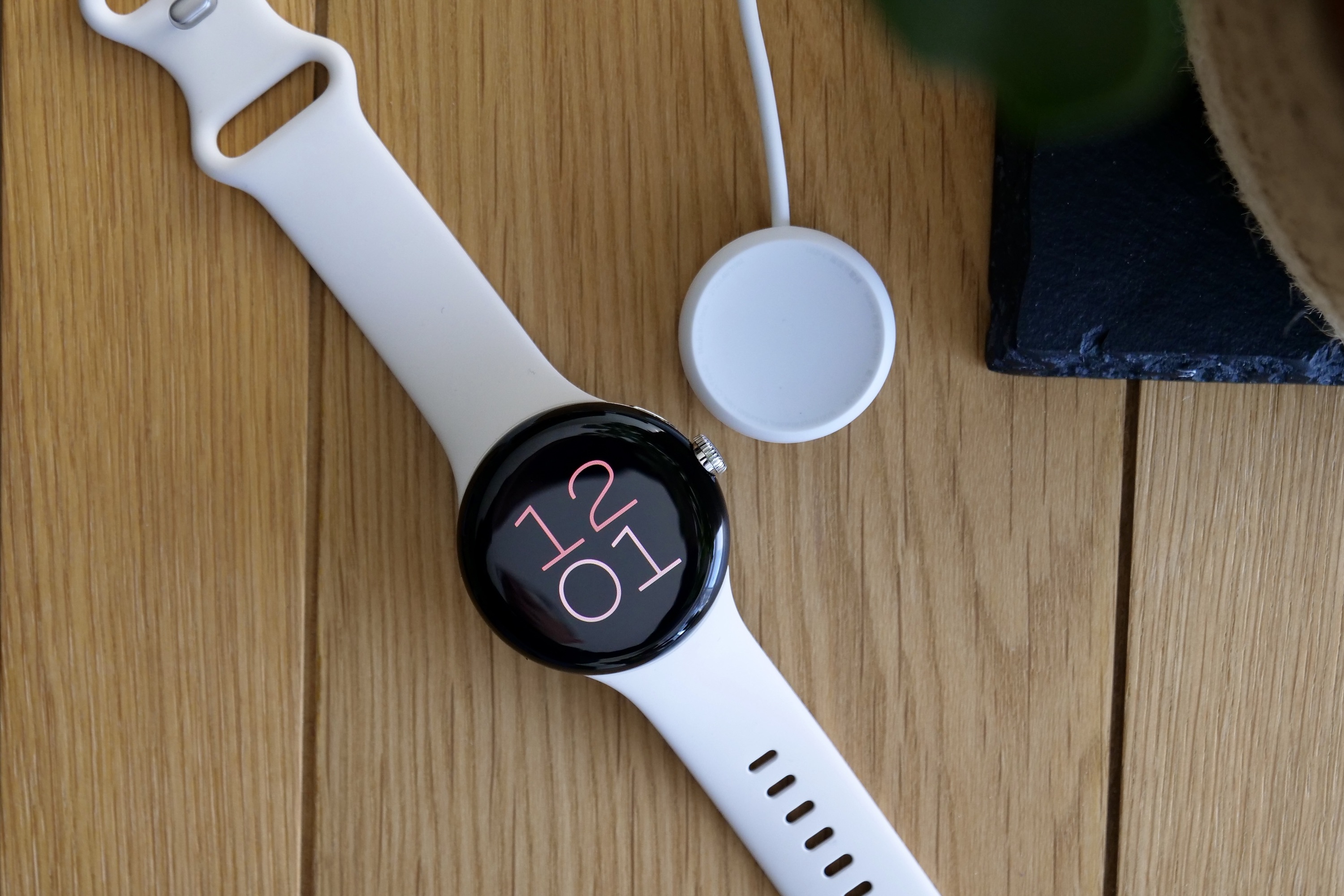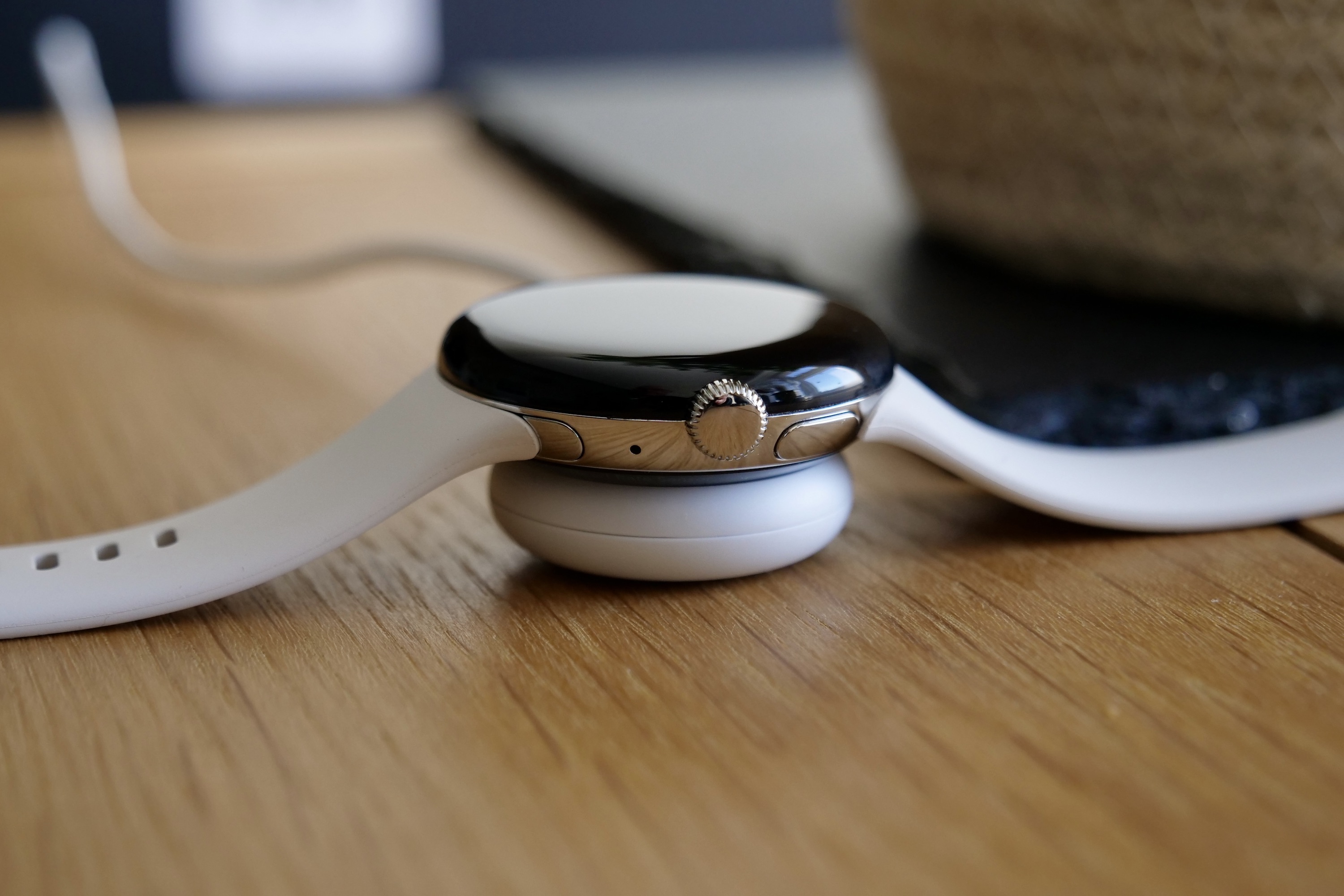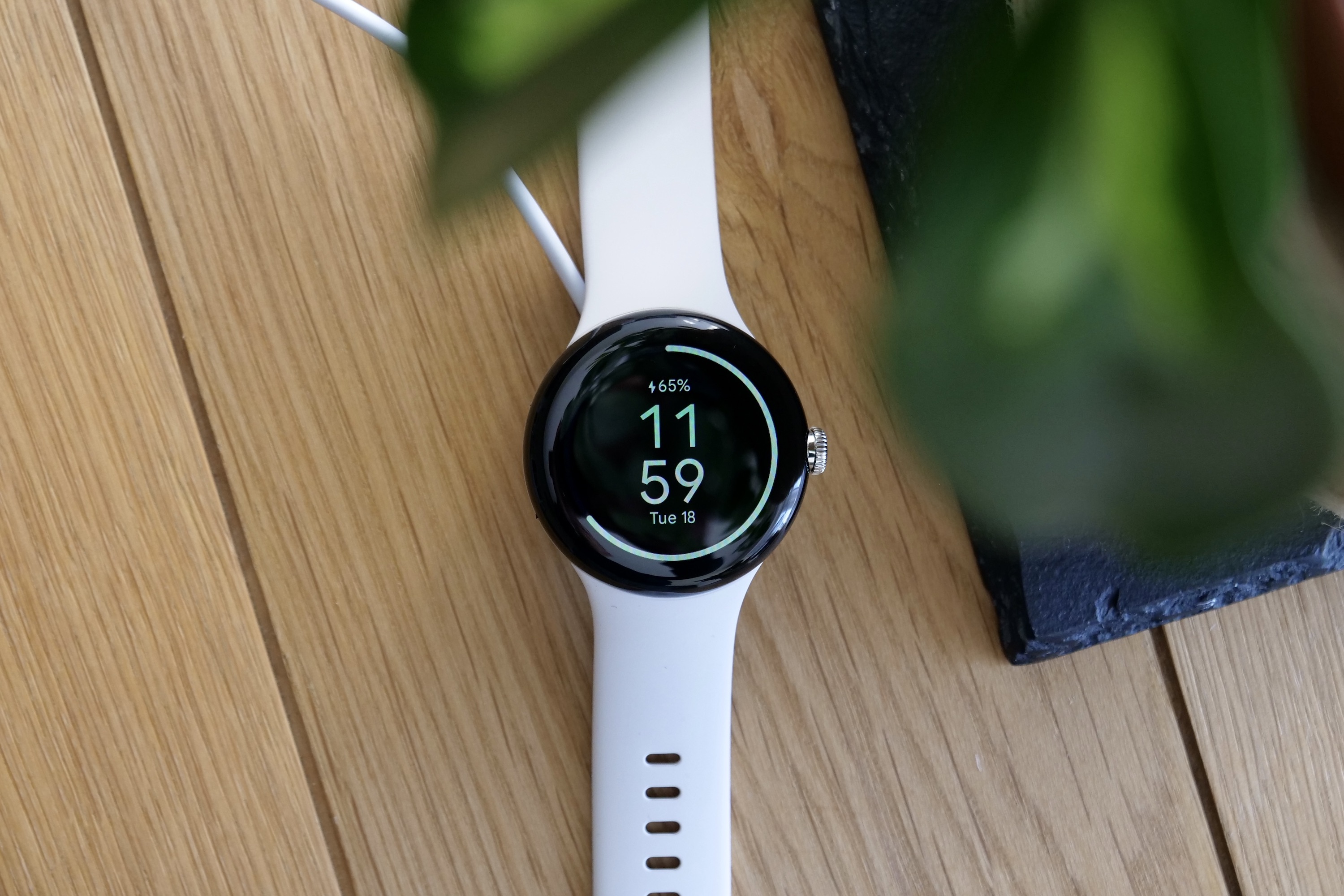“The Google Pixel Watch is an expensive smartwatch that's only available in one size, comes without many of the features offered by its rivals, and is further let down by poor battery life.”
- Very comfortable to wear
- Fitbit app is comprehensive
- Short battery life
- Only one size
- Missing health tracking features
Google, a technology giant, has released its long-awaited and much-hyped Pixel Watch smartwatch to accompany its desirable flagship Pixel 7 smartphone series. This sentence gives you get an idea of the importance and level of expectation on Google’s shoulders here. And given how long we’ve been waiting and the sheer ability of all the companies involved, the Pixel Watch should be Google’s Apple Watch moment.
Except it’s not even close. This is what it’s like, and where it all goes wrong.
Google Pixel Watch design

The Pixel Watch is definitely a watch. It has a circular case, a crown on the side, and a strap to secure it to your wrist. It is devoid of design flourish or extraneous visual garnish, and while there is a button on the side of the case, it’s flush and hidden from view, so you forget it’s there. It’s all very minimalist, but not in a good way. By avoiding anything approaching a personality or character, Google has made the Pixel Watch too simple. I don’t feel anything when I look at it.
Actually, this isn’t strictly true. I regularly look at it on my wrist and think it looks quite dainty like I’ve bought the smaller size by mistake. But no, Google has only made one size, and it’s a serious misstep. The Apple Watch Series 8 and the Samsung Galaxy Watch 5 come in two sizes, making them suitable for different wrist sizes and personal preferences. You can only get a 41mm Pixel Watch, and it’s small for a smartwatch. Producing a single, big 45mm smartwatch is restrictive, but so is only making a single, small 41mm smartwatch.

On the positive side, the case is smooth, ergonomic, and supremely comfortable. It’s light enough at 64 grams with the strap to be worn 24 hours a day, and I’ve been able to sleep happily with the Pixel Watch on my wrist. The Gorilla Glass case back’s rounded shape means it makes good contact with your skin, and the equally curved screen and the lack of physical bezel on the case make swiping smooth and easy. The stainless steel case of my review model is in the Polished Silver color, but you can also get a Matte Black and Champagne Gold style.
My review Pixel Watch has a skin-friendly, very flexible, and easy-to-wear rubber strap — and there are two sizes included in the box. I’m wearing the shortest of the two straps in the photos.
It’s attached using a proprietary system, where you press a tiny button on the case and slide the strap to the side to remove it. It’s a bit awkward to do, and putting it back on requires more precision than you may expect. It does feel very secure, but like the Apple Watch, it means you can’t use normal watch straps — only those specially made with Google’s system.

The crown can be twisted to navigate through the menus, where it’s accompanied by some pleasing haptic feedback, or pressed to open the main menu or go back to the main screen. Unfortunately, the motion is clicky and cheap, while twisting it to navigate is muddier than the Apple Watch and Galaxy Watch 5’s super-smooth and precise action.
The way the case has been cut around the crown makes it look like an afterthought too. The Pixel Watch doesn’t have specific durability features, relying on 5ATM of water resistance rather than an IP rating for water and dust resistance, and military-standard toughness like the Galaxy Watch 5.
The Pixel Watch looks and feels like a missed opportunity. There’s nothing about it that makes it a Pixel Watch; it’s just a smartwatch. It’s not ugly, it’s just terribly ordinary. Perhaps I’d like the way it looked more if it was a bit bigger, but I’ll never know because Google has decided on one-size-fits-all, and that’s simply not true at all.
Google Pixel Watch screen

Above all else, you need to know there’s a big, black bezel around the Pixel Watch’s screen, and that the viewing area is really small because of it. The 1.2-inch AMOLED screen suits the 41mm case size, but the bezel and overly simplistic design make it appear far smaller than it does on the Tag Heuer Connected Calibre E4, for example. The bezel and the small screen mean it never shows very much information at one time. You can see one notification card or three menu items at one time, so you tend to do a lot more scrolling than on something like the Apple Watch.
Efforts to disguise the bezel mean the available watch faces all have black backgrounds. The designs are attractive, though, and I really like the Pilot Bold and Pacific versions, along with the very cool animated Concentric face too. Overall it’s a far better, more varied selection than Samsung provides with the Galaxy Watch 5. The always-on screen is deactivated by default, but I’ve had it turned on for the duration of my review, and the ambient modes look great.

There’s an adaptive brightness option, but for the most part, I’ve found leaving the screen one notch below maximum brightness is the better solution, as it’s not the fastest system in the dark, and it tends to just sit at maximum brightness when adaptive is on anyway. As we’ll come to in a while, anything that perhaps helps extend the battery life is welcome.
The Pixel Watch’s screen is sharp and colorful, with some very well-designed watch faces. However, it’s hurt by the large bezel and subsequent small viewing area. It makes the Pixel Watch’s interface feel constricted and forces you to swipe or twist the crown more just to see what’s going on.
Google Pixel Watch health and fitness tracking

The Pixel Watch has an optical heart rate sensor on the back and can take an electrocardiogram too, and while there is a blood oxygen sensor available, it has not been activated yet. There’s no temperature sensor as you get on the Apple Watch, and no body composition reading like the Galaxy Watch 5. It’s a relatively simple fitness tracker in terms of sensors. Fitbit’s health monitoring platform is the standard system, and the Watch comes with six months of free access to Fitbit Premium.
Compared to many other, often cheaper, fitness trackers, the Pixel Watch is feature-light. I can’t specifically track indoor cycling because there’s no dedicated mode for it, but I can track indoor climbing. The Pixel Watch doesn’t automatically switch to Bedtime mode; you have to do that manually. It doesn’t auto-pause and re-start workouts, it doesn’t have a smart alarm, and there’s no abnormal heart rate detection either. There is an automatic workout recognition mode, but it’s oddly designed and haphazard. Instead of jumping in 10 minutes into a workout like the Apple Watch, it observes silently and then, if you’re lucky, will retroactively apply the entire session to your daily activity. However, it has only worked once for me, and otherwise, I wouldn’t have known it was a feature at all. And even when it does work, it doesn’t record vital information like distance, splits, GPS data, etc.
The Pixel Watch doesn’t do anything a much cheaper Fitbit can do, and isn’t even close to the Galaxy Watch 5 and Apple Watch’s level of health and fitness ability. It’s surprising the Pixel Watch isn’t a proper showcase for Fitbit (a Google company, don’t forget) and its tracking technology. Instead, it’s not even a rival to the Fitbit Charge 5, which outdoes it in terms of functionality and battery life — all for about half the price.
To see all your data, you use Fitbit’s app, where a selection of features require you to pay a subscription to use — and that includes in-depth sleep tracking and a daily readiness score. Yes, you get six months free, but after that, some features will go away until you pay. Google Fit is still available to download and use for free, but it’s not clear how long the platform will be supported, especially given Google’s track record of closing down things it no longer has any interest in.
By default, the Pixel Watch uses steps to provide insight into your daily activity, rather than an easy, more motivational system like Apple’s Rings or Samsung’s heart. You can switch to Daily Active Minutes for more insight, but it’s still not the same. It delivers occasional reminders to move around, but it never feels especially personal, and there’s no fanfare when you reach any targets either. Fitbit’s app is excellent, with plenty of data, a customizable main page, clear graphs, motivational features, and a strong community. It’s also the same app and platform you get when you buy a Fitbit wearable.
The Pixel Watch feels like a basic fitness tracker, despite the presence of Fitbit’s platform.
Accuracy is similar to what I see from the Apple Watch Series 8 and the Oura Ring for both workouts and sleep. The Oura Ring and the Pixel Watch returned the same sleep score, and the GPS routes looked identical between the two smartwatches when tracking a workout at the same time. However, the Pixel Watch did think I walked further than the Apple Watch did, and also recorded a significantly higher calorie burn. These discrepancies should be noted, but it’s not clear which version is the more accurate.
The Pixel Watch feels like a basic fitness tracker, despite the presence of Fitbit’s platform. I’ve got more value and pleasure out of wearing the Garmin Vivomove Sport, greater insight from the Oura Ring, and enjoyed a wider set of features on the Apple Watch Series 8. It does the job of tracking your activity and health, but only just, and at the bare minimum.
Google Pixel Watch software and everyday use
The Pixel Watch has Google’s Wear OS 3.5 software installed. It’s almost identical to the version I used on the Montblanc Summit 3, and free from any additional user interface over it, unlike the Samsung Galaxy Watch 5. You swipe through different Tiles to see pertinent information like your heart rate, daily steps, weather, and agenda. Press the crown to enter the main menu, and swipe up on the watch face to see your notifications. A Samsung Exynos 9110 processor with 2GB of RAM powers the smartwatch.
Wear OS 3.5 has been reliable, but it’s not exactly full of features or imagination. The Apple Watch and Galaxy Watch 5 have far more comprehensive feature sets and apps, but if you just want the basics — maps, mobile payments, health tracking, smart home control, and alarms — the Pixel Watch is perfectly acceptable. Just don’t expect anything like an automatic hand washing timer, crash detection, fall detection (this isn’t ready until later this year), or a Walkie Talkie feature.
The speaker is loud but does tend to distort, and doesn’t provide the highest quality audio experience. That said, the microphone is excellent whether you’re on a call or speaking to the Google Assistant. I’ve found the Pixel Watch picks up my voice very well, and dictating messages and replies to be almost faultless. The screen is a bit small to type on, so this feature is essential, and having it work well is a big benefit.
I’ve gotten used to the slight pause between the Watch letting me know there’s a new message and it actually appearing on the screen when I raise my wrist. It’s not as instant as the Apple Watch and, irritatingly, can add an extra step before you see the final message. For example, WhatsApp messages show the sender’s name first, then a second view with the actual message appears a second or so later. This extra step is likely a consequence of the small screen, and it lessens the quick, at-a-glance helpfulness of receiving notifications on your wrist.
While the subtle haptics are well-judged, they aren’t very strong, and there’s no way to adjust the amount of feedback you get. I notice them most of the time, but they don’t come close to the Apple Watch’s superb haptic patterns and obviousness on your wrist.
The Exynos 9110 is old, having previously been used in the Galaxy Watch 3, and it’s baffling why the latest Qualcomm Snapdragon W5 Gen 1 platform hasn’t been used in this long-awaited, flagship smartwatch from one of tech’s biggest and richest companies. That said, it’s not a poor performer, but the Pixel Watch isn’t so feature-packed that it’s really putting any strain on it. Certainly, for the price, I really expected something a little more impressive.
Google Pixel Watch battery and charging
The Pixel Watch hasn’t impressed much at this point, and while it can’t be labeled a failure, it needs a big win somewhere to justify the high price. Unfortunately, battery life does not help its case at all. Expect one day and one night of sleep tracking, with a single 30-minute workout without GPS tracking and the always-on screen active, and nothing more. To have a hope of reaching two working days, you’ll have to skip both the workout tracking and sleep tracking.
Sleep tracking seems to be particularly power-hungry compared to other wearables, with between 15% and 20% disappearing overnight. While some smartwatches sip power when they’re not doing much, the Pixel Watch eagerly gobbles all the available energy to the point where only minutes can pass, and a few percent disappear from the battery meter. Remember, it’s doing this badly while still only offering a fraction of the features provided by other smartwatches.
To illustrate how poorly it compares to other models, I wore the Pixel Watch alongside the Apple Watch Series 8 for a day starting at about 9 a.m., then tracked a single GPS workout and used them for the rest of the day connected to a Pixel 7 and iPhone 14 Pro respectively. At 11 p.m., the Apple Watch’s battery was at 55%, while the Pixel Watch sat at 22%. To track sleep, I’d have to charge the Pixel Watch, and even then question whether I’d make it through the next day without visiting the charger again.
A USB Type-C charging puck is included in the box, and Google claims a 50% charge comes up in 30 minutes, and it’ll be full after 80 minutes. These match the times seen during our test.
Google Pixel Watch, several months later

I returned to the Pixel Watch some weeks after it was released, but sadly found that I hadn’t warmed to it more — and I put it all down in a single article explaining why it’s not as good as I hoped.
What’s more, after that, I returned to the Pixel Watch again. I did it this time with its main competitor, the Galaxy Watch 5, on my other wrist. Samsung’s smartwatch is by far the superior model, and it’s absolutely the better purchase. You can see the specifications aren’t all that different, but the usability, design, and software are all leaps ahead of Google’s smartwatch.
Getting a second opinion on the Pixel Watch

While I’ve reviewed the Google Pixel Watch, Digital Trends’ Mobile Editor Joe Maring has also been wearing one. And, unfortunately, his thoughts line up almost identically with mine. Here’s what he had to say:
“My experience with Google’s first Pixel wearable has been largely the same as Andy’s. For a $350 smartwatch, this thing just doesn’t cut it. The Pixel Watch looks great, and as someone with small wrists, I think it fits really well, too. But the crown is mushy, the bezels easily distract from what you’re looking at on the screen, and not offering a larger size for people who do want a big watch is mind-boggling to me. That small size also means that the battery is pretty consistently terrible. The Pixel Watch is almost always 20% lower than my Apple Watch Series 7, with almost identical usage and just barely scrapes by a full day of normal use.

“What’s bothered me more, though, is the Pixel Watch’s approach to health and fitness. I’m not a fitness nut — I go to the gym a few times per week and enjoy a couple of outdoor walks during the weekend. But even for me, the Pixel Watch doesn’t offer enough. The lack of automatic workout detection is a massive oversight, no irregular heart rhythm notifications makes zero sense, and almost all of the really interesting health data logged by the Pixel Watch is locked behind a $10 per month Fitbit Premium subscription. It does less than the competition while also charging more money. It’s a lose-lose.
“I didn’t go into using the Pixel Watch hoping to be disappointed. I wanted the Pixel Watch to be an exciting entry in the Wear OS world and something that would make the wait for Google’s fabled smartwatch worth it. But now that it’s here, it’s hard to look at the Pixel Watch as anything more than a half-baked, overpriced smartwatch that’s difficult to recommend to anyone.”
Google Pixel Watch price and availability
The Wi-Fi version of the Pixel Watch costs $350 or 339 British pounds, while the 4G LTE model costs $399 or 379 pounds. To use the 4G LTE functionality, and potentially leave your phone at home but remain contactable, your phone carrier will charge an extra amount per month.
It’s an expensive smartwatch, but for no good reason. The 40mm Samsung Galaxy Watch 5 costs $280 before Samsung’s various trade-in deals and is a far better purchase. The 44mm version is $310 if you prefer a larger watch. If you only want to track your health the Oura Ring does so very well, costs about the same, and like the Pixel Watch, also has an obnoxious subscription package to continue seeing your data after six months of use.
If you want Fitbit’s platform, almost any wearable the brand offers is a better buy than the Pixel Watch. The Charge 5 is far cheaper and does more, or if you want one of its dubiously styled smartwatches. Even the top Fitbit Sense 2 costs much less. The software may not be Wear OS, but it’s reliable, notifications are good, it tracks all your health metrics, and comes with six months of a Fitbit Premium membership.
The Pixel Watch disappoints, and that’s frustrating

For a first-try product, the Pixel Watch should be given a break, right? After all, Google hasn’t made a smartwatch before, and first-generation hiccups are to be expected. Nonsense. There’s no excuse for the Pixel Watch’s many downsides. Apart from the Pixel Watch gestating for years, Google makes the top Android-based software for wearables, it has worked with multiple companies on smartwatches — from Samsung and LG to Montblanc, since before smartwatches became popular — and had a strong hand in one of the very first desirable smartwatches released, the original 2014 Moto 360.
It purchased Fitbit and has access to its incredible know-how and established technology, and spent millions on a team of smartwatch engineers and technology from Fossil. Google itself is hardly a startup lacking in resources or brain power, and the smartwatch as a device is a very established product line. Yes, making new products is hard, but it’s not breaking any new ground here. Yet somehow, it still makes a mediocre device with little to recommend over the competition.
Not only has Google failed to make the Apple Watch of the Android world, but it has also failed to even make one that could be considered an equivalent to the 2019 Apple Watch Series 5. Samsung makes a better-looking, more feature-packed, cheaper smartwatch with a more attractive, more enjoyable-to-use version of Wear OS. When the Galaxy Watch 5 exists, there is no reason to buy the Pixel Watch, and it’s shocking Google thinks its smartwatch is worth an extra $70.
The Pixel Watch isn’t a bad product, in that it performs the functions Google says it will and is well made. But it’s far from good value, lacks a distinctive design and choice of sizes, and can’t compete with products that cost a lot less in terms of features. The poor battery life makes living with it harder than it should be, and I find pushing a subscription-based fitness platform by default quite unpleasant.
I really think Google could have done better with the Pixel Watch, and absolutely know that you can do better with your next smartwatch purchase.

